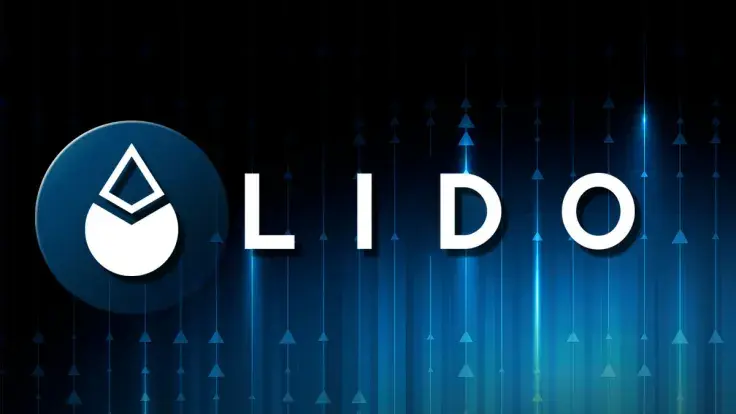
Disclaimer: The opinions expressed by our writers are their own and do not represent the views of U.Today. The financial and market information provided on U.Today is intended for informational purposes only. U.Today is not liable for any financial losses incurred while trading cryptocurrencies. Conduct your own research by contacting financial experts before making any investment decisions. We believe that all content is accurate as of the date of publication, but certain offers mentioned may no longer be available.
Lido DAO is rapidly gaining recognition as one of the most promising platforms in the decentralized finance (DeFi) space. Its popularity stems from its ability to enable investors to stake cryptocurrencies, including Ethereum (ETH), Solana (SOL), Kusama (KSM) and Polygon (MATIC), without the need for minimum deposits or complicated infrastructure.
In 2022, Lido stood out as a leader in ETH staking, thanks to its innovative approach to the challenge posed by the transition from proof of work (PoW) to proof of stake (PoS) consensus on the market's leading altcoin. Many cryptocurrency users face a significant barrier in staking ETH, as the required investment of 32 ETH is beyond reach for many. Lido provides an accessible solution that democratizes staking for everyone.
The platform also incentivizes staking participation through daily rewards, maximizing the potential returns for stakers. Its token, LDO, is multichain, which allows for greater flexibility and increased access to different networks, such as lower fees and faster transactions.
In addition, Lido's DAO plays a crucial role in the platform's governance, helping to build liquid staking solutions and fostering a community-driven approach to project development. The DAO empowers users to have a direct impact on the future of the platform and provides a mechanism for collective decision-making. This makes Lido's DAO a key factor in shaping the direction of the staking platform.
Lido V2
The recently proposed update to the Lido protocol is being hailed as the most transformative change to the platform yet and represents a significant step toward greater decentralization. This has been a long-standing challenge for Lido, and the new proposal seeks to address it head-on.
One of the key features of the update is the introduction of the staking router. With its new modular architecture, developers will be able to create gateways for new node operators, ranging from individual stakers to DAO clusters and Distributed Validator Technology (DVT), leading to a more diverse ecosystem of validators.
The second major aspect of the update involves the upgrading of withdrawals. The new version of the Lido protocol on Ethereum will allow stETH holders to withdraw their funds at a 1:1 ratio, marking an important milestone in the Ethereum staking ecosystem by enabling truly open entry and exit. This change is expected to greatly enhance the usability of the platform and encourage greater adoption.
Positive points for Lido
The Ethereum network is poised to undergo a major transformation in March 2023 with the launch of the Shanghai hard fork. This event will enable network participants to withdraw their ETH, which has been locked up since the Beacon Chain. This development could provide a significant boost to Lido's position as a leading staking platform for ETH, as liquidity is expected to flow onto the cryptocurrency market.
It is worth noting that Lido is also at the forefront of liquid staking on the smart contract platform. This innovative approach to staking allows participants to withdraw their assets at any time, without the restrictions that come with traditional staking, which requires assets to be locked up for extended periods.
This advantage could help Lido differentiate itself from more centralized Ethereum staking options, such as cryptocurrency exchanges. However, maintaining this leadership position may not be straightforward for Lido, even with the recent improvements. With the advent of Shanghai, more staking platforms are likely to emerge, which could dilute Lido's market share. Nevertheless, this could be seen as a positive development for the Ethereum staking ecosystem, as it will lead to a more decentralized process.

 Dan Burgin
Dan Burgin Vladislav Sopov
Vladislav Sopov